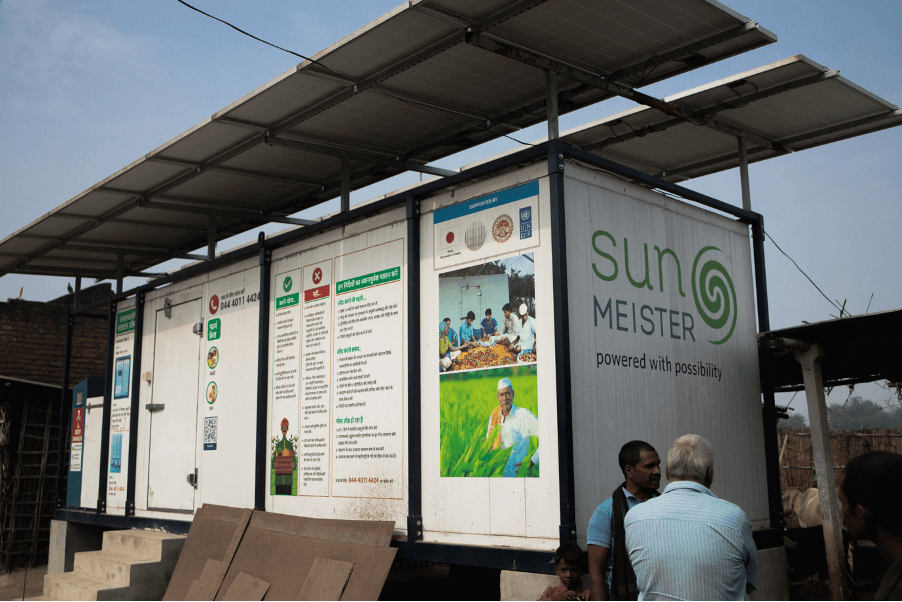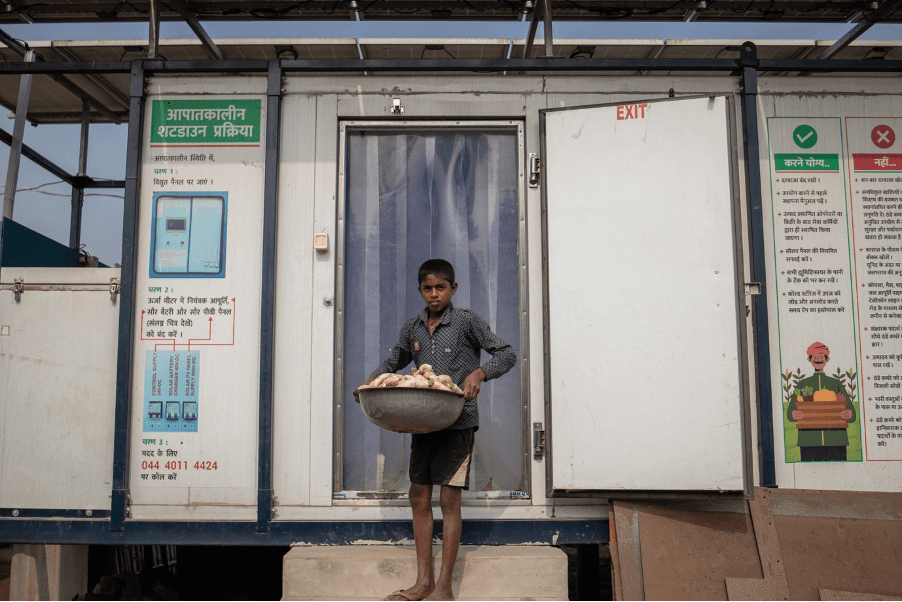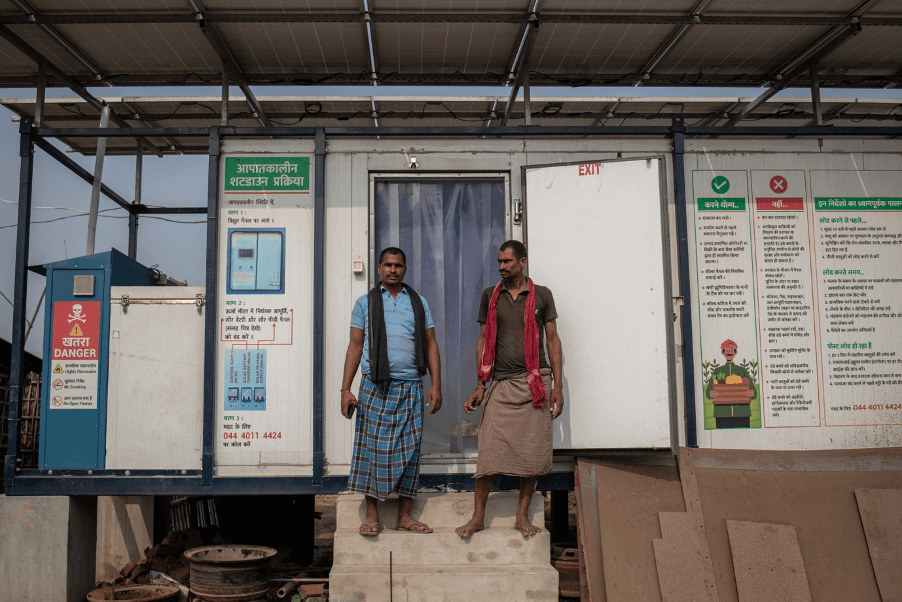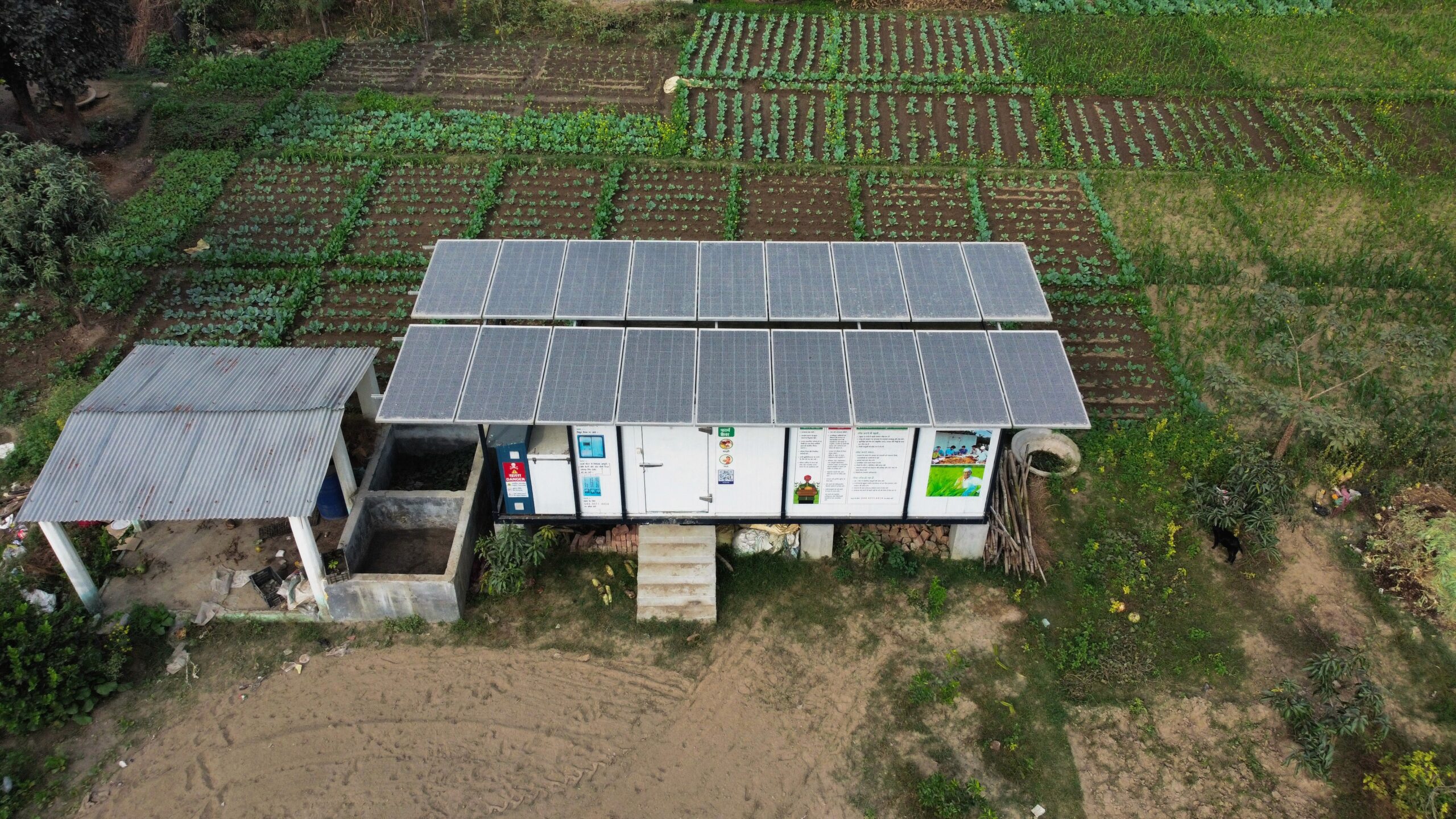In the heart of rural Bihar and Madhya Pradesh, where age-old farming wisdom meets modern innovation, something remarkable is taking shape. Together with the United Nations Development Programme (UNDP), Government of Japan, state governments of Bihar and Madhya Pradesh, and local farming communities, Sunmeister Energy’s solar cold storage units are helping preserve more than just harvest – they’re nurturing agricultural traditions while embracing sustainable change.

These cold storage units emerged from a beautiful tapestry of partnerships. International organizations brought their expertise, state governments provided crucial support, and local farming communities contributed their invaluable knowledge. Farmer Producer Organizations (FPOs) became the voice of local farmers, while organizations like EPCO ensured environmental best practices were followed. Jeevika, Bihar’s State Rural Livelihoods Mission, brought deep insights into rural development challenges and opportunities, ensuring solutions truly met community needs.
Step inside these solar-powered chambers, and you’ll find innovative technology working in harmony with rural realities. Advanced cooling systems powered by India’s abundant sunshine keep produce fresh without worry about power cuts. Smart monitoring systems track performance in real-time, ensuring the units run smoothly even in the most remote villages. The remote monitoring capability is more than just a technical feature – it’s a lifeline that ensures rapid response to any operational issues, keeping farmers’ precious produce safe around the clock.
But bringing these units to rural communities wasn’t without its challenges. Many villages lacked proper roads, making equipment transport difficult. We solved this by designing modular units that could be transported in parts and assembled on-site. Local community members were trained not just to operate these units but to maintain them, creating a new generation of skilled technicians in these villages. This approach did more than solve a logistical challenge – it created employment opportunities and fostered a deep sense of ownership within each community.
The impact on climate resilience has been transformative. As weather patterns become more unpredictable and temperatures rise, these solar cold storage units serve as a shield for farming communities. They allow farmers to better manage increased variability in crop production, providing a buffer against climate shocks. During times of market volatility, farmers can now make strategic decisions about when to sell their produce, rather than being forced into distress sales.
The units have become catalysts for agricultural innovation. With reliable storage facilities, farmers can now experiment with a wider variety of crops, including those better suited to changing climate conditions. This diversification spreads risk and increases overall farm resilience. Even during power outages caused by extreme weather events, these hybrid solar units ensure continuous operation, maintaining the crucial cold chain when it’s needed most.
Beyond preserving produce, these units are champions of environmental protection. By preventing food waste, they reduce methane emissions from rotting produce. Each solar-powered unit eliminates the need for polluting diesel generators. When we save food from spoiling, we also save all the water, energy, and resources that went into growing it – creating a beautiful cycle of sustainability. The impact extends beyond individual farms to strengthen entire local food systems, making communities more resilient to climate challenges.

The training programs developed for local operators represent another crucial component of the project’s success. These comprehensive programs cover both technical aspects of unit operation and basic maintenance, creating a sustainable model of operation that doesn’t rely on external support. This investment in human capital has created a ripple effect, with trained operators becoming local champions of sustainable technology.
This is more than just a story about solar cold storage – it’s about how sustainable technology can transform lives while respecting traditional practices. In every successful installation, we see the future of rural agriculture: resilient, sustainable, and deeply rooted in community wisdom. From preventing food waste to empowering farmers, from protecting our environment to building resilient communities – this is the story of sustainable change, powered by Sunmeister, made possible by partnership, and brought to life by the communities who needed it most.
As we look to the future, these solar cold storage units stand as proof that renewable energy technologies can address complex developmental challenges while empowering rural communities. They demonstrate how thoughtful integration of modern technology with traditional agricultural practices can create lasting positive change, improving lives while protecting our planet for generations to come.


